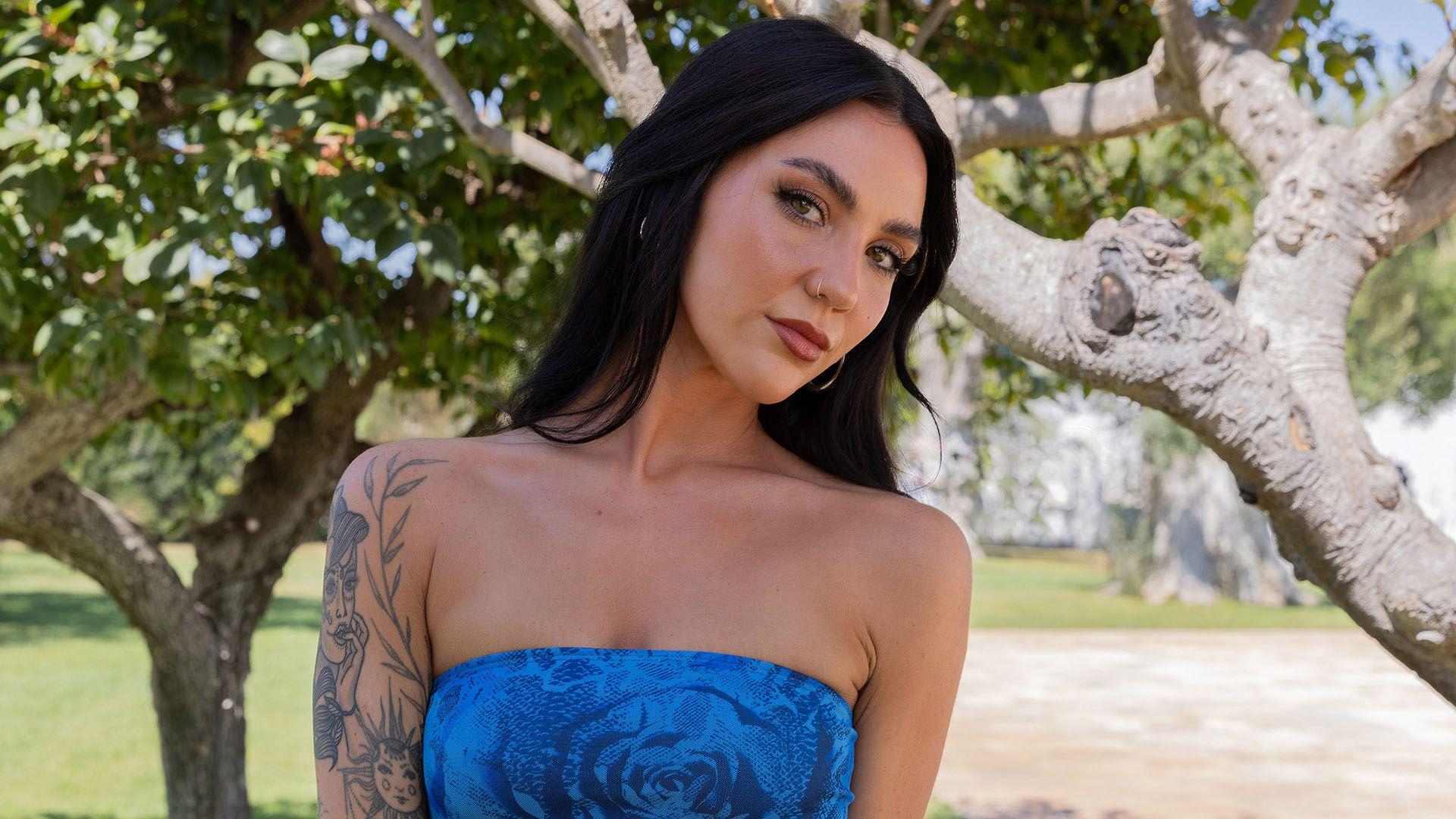'As a bisexual, there's no-one you can really relate to'

Cara discussed her experiences of being bisexual in new ¥ÛœÛ¥´√Ω Three show I Kissed a Girl
- Published
For Cardiff City LFC footballer Lailah Muscat, coming out as bisexual was a difficult process.
“I had a few gay friends in football,” the 26-year-old says, “but I didn’t know anyone that was bi.”
Other people’s perceptions made it hard to accept her sexuality, she remembers.
‚ÄúBisexuality was questioned,‚Äù adds Lailah, who is currently starring in the ¥ÛœÛ¥´√Ω‚Äôs all-female dating show I Kissed a Girl. ‚ÄúPeople were like, ‚Äòyou‚Äôre either straight or you‚Äôre gay‚Äô.
“Because I didn’t know any bi people, I assumed that maybe I was just confused, or I was gay, and I just wasn’t ready to fully come out.”
Lailah says her bisexuality was 'questioned' by her lesbian and gay friends
Lailah’s castmates Meg and Cara agree. “I felt a confusion of being in between and not knowing which way to go,” says Meg, 24.
And Cara, 25, adds: “In school, when someone used to talk about bisexual people, they would just say they’re greedy, or say they’re just promiscuous.”
Cara, Meg and Lailah discuss the stigmas they face as bisexual people in episode six of ¥ÛœÛ¥´√Ω Three‚Äôs I Kissed a Girl.
Read more
- Published13 August 2023
- Published3 August 2023
A man at a rally celebrating International Day of Bisexual Visibility in Madrid in 2021. Bisexuality being a 'phase' is an often-heard misconception
‘If I saw someone like me on TV, I wouldn’t have felt weird’
A 2021 study from LGBT youth charity Just Like Us, looking at the experience of school pupils aged 11 to 18 as well as teachers, suggests more than half (54%) of bisexual young people felt lonely on a daily basis.
For Just Like Us’ chief executive Laura Mackay, the lack of representation of bisexual people in the media is partly to blame for the way some bisexual people feel.
“You have to be able to articulate how you feel,” she says. “I think it's really difficult to do that if there's not anyone that is a representation of you or that you can relate to.”
Cara agrees: “There’s not much representation of bisexuals. There’s no-one you can really relate to, so you’re in a major crisis in your mind. It’s a daunting situation.”
Isaac, who works as a bisexual youth ambassador for Just Like Us, says: “You just don't see yourself represented at all, you don't know your own identity is a possibility.”
Lailah adds: “If I saw someone that was similar to me on TV or in a movie, I wouldn't have felt like I was weird for most of my childhood.”
There has been progress since Lailah, Meg and Cara were younger.
A number of popular shows in recent years have featured bisexual characters, including Netflix hits Sex Education and Heartstopper, while the ¥ÛœÛ¥´√Ω‚Äôs EastEnders features bisexual characters Sonia Fowler (played by Natalie Cassidy) and Ash Panesar (Gurlaine Kaur Garcia).
However, LGBT+ media charity that the 2023/4 TV season has the lowest number of bisexual characters since 2020.
Ash Panesar (Gurlaine Kaur Garcia) is one of the limited number of bisexual characters on TV
‘I had no-one to ask for advice’
For Cara, being bisexual was a double strain, with neither her gay or straight friends able to fully understand what she was going through.
“The LGBT friends I had, most were just exclusively gay,” she says. “I felt like I had no-one to ask for advice.
“I was worried about talking about boys around them and putting them off.”
Laura agrees: “Over the years, even within the LGBT+ community, there has been stigma around bisexual people.
“That is something that's certainly started to be better with better understanding.”
Meg and Cara bonded on I Kissed a Girl, where they were the first other bisexual person each one of them had met
‘We’ve got to see bisexual people as permeating society’
Neither Lailah, Meg or Cara from I Kissed a Girl remember hearing bisexuality discussed in school as part of the relationships, sex and health education (RSHE) curriculum.
“I went to a Catholic school,” says Lailah, “and we barely touched on homosexuality, let alone anything else.
“And when you did it was whispers and then you just move on.”
For Laura, from Just Like Us, the issue is the lack of training teachers receive before giving lessons on sexuality.
“I was an English teacher who was on the list to teach RSHE. I loved teaching it, but many teachers got it just dumped on their timetable with no training. There are some really tough issues around LGBT stuff that staff need support with.
“It’s also got to go beyond RHSE. We’ve got to see bisexual people as permeating society rather than just an add-on.”
A Department for Education spokesperson said: "Our guidance on relationships, sex and health education is clear that we expect all secondary schools to teach the facts about sexual orientation and to provide an equal opportunity to explore the features of stable and healthy same-sex relationships.
“More widely, we’re helping schools and colleges provide targeted support to children and young people with poor mental health through our senior mental health lead training grants – so far 70% of schools and colleges have taken up the offer, up from 58% last year.”
One way Just Like Us tries to make students more aware of bisexual representation is by having speakers go into schools.
Isaac was surprised from the beginning at the effect his talk had on students.
“Almost the very first talk that I did,” he says, “a girl came up to me afterwards, and said something to the effect of, ‘I know that I like boys, but I think I also like girls.’ She basically said that the talk had made her feel a bit more okay about that fact."
Sources of support are available via the ¥ÛœÛ¥´√Ω Action Line